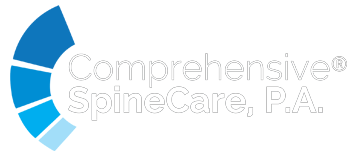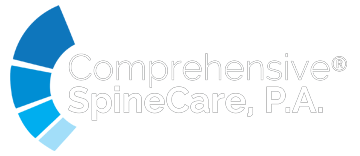Back pain is a common problem that many people experience. There are many different causes of back pain, and it can vary from person to person. If you are experiencing back pain, you may be wondering if a back brace can help. Back braces can be beneficial for certain types of back pain, but it is important to consult with your doctor to see if it is the right solution for you. In some cases, a back brace may be recommended in order to help alleviate the pain. In this blog post, we will discuss when a back brace may be beneficial for back pain. While only a spinal specialist can confirm whether or not you need a back brace, you may need a back brace if you have any of the following conditions:
Degenerative Disc Disease
Degenerative disc disease (DDD) is caused by the natural aging process, and it leads to a breakdown of the vertebral discs in your back. The condition can cause pain when you turn or bend, as well as numbness and weakness. A back brace could provide relief for those who have DDD because it will help keep your spine stabilized and support some of the weight the disc would normally carry. A back brace will also limit motions around the affected area, like bending and twisting.
Isthmic Spondylolisthesis

Isthmic spondylolisthesis occurs when one vertebra slips forward on the one below it, usually because of a fracture in the pars interarticularis. The pars interarticularis, also known as the isthmus, is a small bone that makes up the facet joint. When this bone fractures, usually due to stress, it can cause pain and stiffness in the back or leg. A back brace may be recommended for those who have isthmic spondylolisthesis in order to help limit the range of motion and keep the vertebrae from slipping further.
Osteoarthritis
Osteoarthritis is a condition that occurs when the cartilage in your joints breaks down over time, leading to pain and stiffness. A back brace may be recommended for those who have osteoarthritis because it can help provide stability, reduce pressure on the joints, and limit movement around the affected area.
Spinal Stenosis
Spinal stenosis is a condition that occurs when the spinal canal becomes narrowed, which puts pressure on the spinal cord and nerves. This can cause pain, numbness, and weakness in the back and legs. A back brace may be recommended for those who have spinal stenosis in order to help relieve the pressure on the spinal cord, as well as the nerve roots. The brace will limit the range of motion in your back and keep your spine stabilized. It can also help distribute some of the weight to your abdomen and/or make other postural adjustments.
Spondylolysis
Spondylolysis is a condition that occurs when one or more of the vertebrae in your lower back fracture, usually as a result of stress. This can lead to pain and stiffness in the back, as well as numbness and weakness in the legs. A back brace may be recommended for those who have spondylolysis because it will limit movement around the affected area. It may also help the fracture heal and can be used to prevent isthmic spondylolisthesis.
Vertebral Compression Fractures
A vertebral compression fracture is a condition that occurs when one or more of the bones in your spine breaks due to pressure. It can lead to pain and stiffness, as well as possible deformity. A back brace may be recommended for those who have vertebral compression fractures because it will help limit movement around the affected area, which will allow for the bone to heal. A back brace can also reduce pressure on the affected area.
There are a number of other conditions that may warrant the use of a back brace, so it is important to consult with your doctor if you have any concerns. If you do need a back brace, there are many different types available that can be tailored to your individual needs. So, if you’re experiencing back pain, don’t hesitate to ask your doctor about whether a back brace could help.










